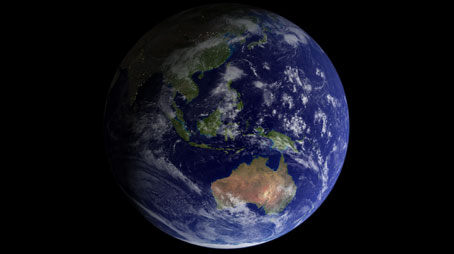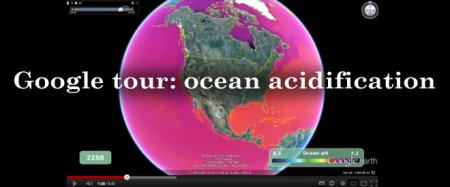| SEARCH |
-

Nov 17, 2015
Reflections on a three-decade legacy
The International Geosphere-Biosphere Programme (IGBP) will come to a close at t...
-
Nov 17, 2015
Use of and access to content on this website
Text and images produced by IGBP in house are free to use with appropriate credi...
-
Nov 12, 2015
Bella Gaia performance and panel discussion to mark IGBP's closure
A musical performance by Bella Gaia will celebrate the achievements and legacy o...
-

Towards Future Earth:
evolution or revolution?
During its three decades of existence, the International Geosphere-Biosphere Pro...
-
A personal note on IGBP and the social sciences
Humans are an integral component of the Earth system as conceptualised by IGBP. João Morais recalls key milestones in IGBP’s engagement with the social sciences and offers some words of advice for Future Earth.
-
IGBP and Earth observation:
a co-evolution
The iconic images of Earth beamed back by the earliest spacecraft helped to galvanise interest in our planet’s environment. The subsequent evolution and development of satellites for Earth observation has been intricately linked with that of IGBP and other global-change research programmes, write Jack Kaye and Cat Downy .
-
Deltas at risk
Around 500 million people worldwide live on deltas, but many of the world's deltas are sinking due ...
-
Climate change: the state of the science
A new data visualization released on the first day of the plenary negotiations at the UNFCCC’s clima...
-
Climate Change:
the State of the Science
Videos now online from the Stockholm public forum to mark the launch of the IPCC's climate report, 2...

Ticking time bombs in the human-earth system:
Australian Academy of Science
Canberra
26- 27 November 2012
Held in conjunction with the 25th Officers Meeting of the International Geosphere Biosphere Programme
Topic 1: The carbon investment bubble: the disconnection between earth system science and society in fossil fuel investments
Topic 2: Polar deglaciation and sea level rise
Topic 3: Sustainability of the Great Barrier Reef
Topic 4: Global food security in the long term


Welcome & Introduction (18 Minutes)
Tas Van Ommen, National Committee Earth System Science
Professor Ian Chubb, Chief Scientist of Australia
Topic 1:
The carbon investment bubble: Overview (23 Minutes)
Ian Dunlop
Limits of cumulative CO2 emissions for peak global warming targets – global and the Australian share. (32 Minutes)
David Karoly, University of Melbourne
Malte Meinshausen, University of Melbourne
Implied cumulative emissions commitments from existing and planned fossil fuel infrastructure investments in Australia. (25 Minutes)
John Hepburn, Sunrise Project
Constraints on institutional investment in low emission energy. (33 Minutes)
Garry Weaven, Industry Funds Management
Bursting the bubble – an integrated suite of Australian solutions for rapid transition to the low-carbon economy. Beyond Zero Emissions. (31 Minutes)
Patrick Hearps, University of Melbourne

Topic 2:
Polar deglaciation and sea level rise: Introduction
Tas van Ommen, Australian Antarctic Division and ACE CRC (19 Minutes)
The outlook for abrupt impacts from polar ice sheets. (47 Minutes)
Christian Schoof, University of British Columbia
Ice sheets and sea level in the past. (31 Minutes)
Tim Naish, NZ Climate Change Centre
The human context - impacts of sea level increase. (29 Minutes)
John Hunter, ACE-CRC
Panel Discussion (41 Minutes)
Christian Schoof
Tim Naish
John Hunter
Tas van Ommen
Special presentation:
Update on IGBP and the inter-agency Future Earth Initiative. (36 Minutes)
Sybil Seitzinger, International Geosphere Biosphere Programme (IGBP)
James Syvitski, International Geosphere Biosphere Programme (IGBP)

Topic 3:
Sustainability of the Great Barrier Reef
A framework for addressing transformational change. (18 Minutes)
Brian Walker, CSIRO
Tipping points and multiple drivers of change affecting the Great Barrier Reef. (23 Minutes)
Terry Hughes, ARC Centre of Excellence for Coral Reef Studies
Changes to reef ecosystems shown by the AIMS monitoring program. (15 Minutes)
Peter Doherty, AIMS
Water quality changes and impacts from land. (13 Minutes)
Jon Brodie, James Cook University
The future of marine mammals and sea turtles. (13 Minutes)
Helene Marsh, James Cook University
Connectivity and the role of marine parks. (16 Minutes)
Geoff Jones, ARC Centre, James Cook University
Managing GBR World Heritage values: what’s working. (11 Minutes)
Jon Day, GBRMPA
Sustaining GBR tourism. (10 Minutes)
Daniel Gschwind, Qld Tourism Industry Council
Conservation planning under change. (10 Minutes)
Bob Pressey, ARC Centre of Excellence for Coral Reef Studies
Sustainability and development of the GBR. (11 Minutes)
Ian Poiner, former AIMS
Panel Discussion - Topic 3 (30 Minutes)
Jon Day
Daniel Gschwind
Bob Pressey
Ian Poiner

Topic 4:
Global food security in the long term
Global Food Security: ticking timebombs and how to defuse them. (28 Minutes)
Julian Cribb
Loss of Aqua- and Agra-land in High Population Sinking Deltas. (38 Minutes)
James Syvitski, University of Colorado
A socio-economic perspective on long term food security. (43 Minutes)
Monika Barthwal-Datta, University of NSW
Panel Discussion - Topic 4 (20 Minutes)
Julian Cribb
James Syvitski
Monika Barthwal-Datta
Concluding Remarks. (8 Minutes)
Tas Van Ommen, National Committee Earth System Science
IGBP closed at the end of 2015. This website is no longer updated.
-

Global Change Magazine No. 84
This final issue of the magazine takes stock of IGBP’s scientific and institutional accomplishments as well as its contributions to policy and capacity building. It features interviews of several past...
-

Global Change Magazine No. 83
This issue features a special section on carbon. You can read about peak greenhouse-gas emissions in China, the mitigation of black carbon emissions and the effect of the 2010-2011 La Niña event on gl...
-
INTERGOVERNMENTAL PANEL ON CLIMATE CHANGE:
How green is my future?
UN panel foresees big growth in renewable energy, but policies will dictate just how big.
-
UK:
'The Anthropocene: a new epoch of geological time?'
Royal Society, Philosphical Transactions A




















